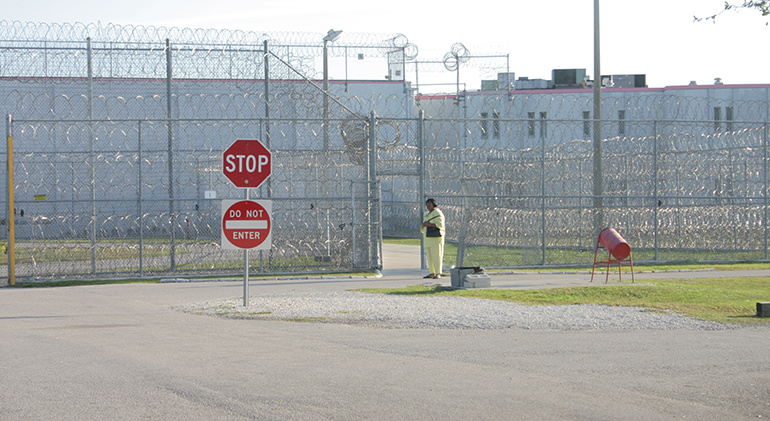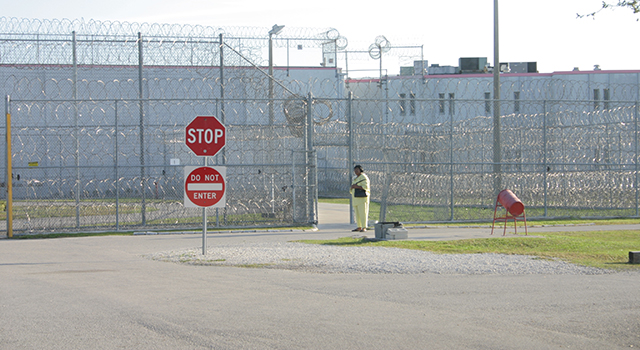By Tom Tracy - Florida Catholic

Photographer: FILE
For years, Florida's bishops have backed civil citations, rather than arrests, for teens who commit misdemeanor offenses. Working with faith-based groups, the bishops are trying to make the practice more widespread throughout Florida.
MIAMI | Teens referred to law enforcement for misdemeanor first offenses should get second chances rather than bear the "scarlet letter" of an arrest for the rest of their lives.
So say the bishops of Florida, hundreds of other faith leaders and even some state attorneys.
"Arrest records rob these children of a future of hope,” Miami Archbishop Thomas Wenski said during a July 9, 2020 virtual press conference sponsored by DART (Direct Action and Research Training) to promote greater use of Florida's Juvenile Civil Citation Program.
Authorized in 2011, civil citations give law enforcement the option of dealing more gently with non-serious misdemeanors, sending offenders to diversion programs rather than prison. If the offenders finish the program, their criminal record is withheld. This alleviates the life-long problem of having an arrest record hamper a youngster's life.
Miami-based DART and its local affiliate, PACT (People Acting for Community Together), have succeeded in promoting the use of civil citations for youths in South Florida. At least 95% of minors in both Monroe and Miami-Dade counties were afforded the civil citation alternative to arrest.
But that's not true throughout the rest of the state. Broward County, for example, only offered civil citations to 60% of the youths arrested there last year, according to DART officials. The movement’s goal is to raise that level to 80% throughout Florida.
“It is important that we reverse this trend of arresting children over minor offenses," Archbishop Wenski said.
He noted that the Tallahassee-based Florida Catholic Conference, which represents Florida's bishops in matters of public policy, promotes the use of civil citations.
“We must continue to keep (the law enforcement community) accountable so that they continue to extend the application of this program to all eligible children,” Archbishop Wenski said.
Msgr. Chanel Jeanty, Miami archdiocesan chancellor and vicar general, helped convene the virtual press conference. He is a longtime advocate of civil citations and a board member of PACT. He noted that some 5,000 youths were arrested and given criminal records last year in Florida.
Arrest records are a significant obstacle to juveniles later in life — described by one lawmaker as a kind of "Scarlet Letter’ — when they apply for scholarships, jobs, and entrance into the military. The use of expungement or sealing of records is reported to be porous due to modern technology.
“We have been working together on this (issue) since 2014 and this is the first time we have invited all the (DART) network members from all the Florida counties to join us," Msgr. Jeanty said. "We cannot simply stop because COVID has come our way.”
Florida’s civil citation program directs juveniles toward a community-based diversion program. It is offered for first time misdemeanors (non-serious offenses), allowing juveniles to make restitution to victims and complete interventions to change their behavior without obtaining a criminal record.
DART also notes that:
- Civil citations are only related to non-violent misdemeanors and would not impact youths who commit violent crimes or felonies. Common reasons why youths are charged with misdemeanors include petty theft, disorderly conduct (fight at school that doesn’t result in serious bodily injury), and possession of a minor amount of marijuana.
- Recidivism for civil citations is 5% compared to 10% for those arrested for first-time misdemeanors; the recidivism rate is closer to 40% for those sent to detention centers, according to Theda Roberts, Civil Citation Coordinator for Florida's Department of Juvenile Justice.
- The cost of civil citations is $385 compared to nearly $5,000 for a juvenile to be processed in the Juvenile Court system. In the last year, the state would have saved $53 million if all eligible youths (nearly 12,000) had received a civil citation.
- Some counties fully use civil citations but statewide only 43% of eligible juveniles received one in the 12-month period ending June 2015; the result is 11,890 youths have received an arrest record and did not get access to the program during this period. (DJJ report, June 2015).
Another civil citation proponent in Florida, Father Chris Hoffman, a priest based in Port Orange, told the press gathering that his local attorney general has enthusiastically begun reviewing youth arrest records through a new measure that can retroactively reduce a teen arrest to a civil citation.
“This process was only put into place a few weeks ago but already 25 children have been able to avoid getting an arrest record,” Father Hoffman said. “We feel confident that through the leadership of our state attorney's office, that Volusia county will be at an 80% usage rate or better for juvenile citations. We will continue to grow the juvenile civil citation program.”
In the Tampa area, the Rev. Jean Cooley of the Presbyterian church, cited numbers showing that most youths who complete the civil citation program will not become repeat offenders.
“We believe children should get second chances if they commit a childish behavior,” she said.

